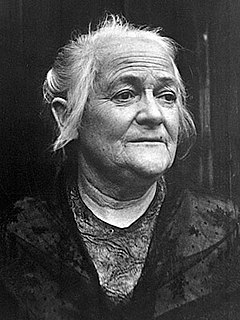A Quote by Jill Stein
I think it depends on what agenda that female president brings. It's not good if that female president brings an agenda which is actually hostile to the cause of living wages. Women need equal wages to men, but not equal wages at poverty.
Related Quotes
I think actually under scrutiny, Hillary's [Clinton] promotion of equal wages at poverty level and of healthcare for children but not for their families, of childcare when there are no jobs, it just doesn't cut it. I think women need a real agenda of justice because women are care-givers, because women are instruments of justice for our families and for our communities.
I don't know if I ever mentioned back in 2002 we fought our way into a governor's debate in Massachusetts where, you know, this was televised and I articulated our usual agenda: cut the military, put the dollars into true security here at home, provide healthcare as a human right, raise wages which needed to be living wages, green our energy system, equal marriage? - we were the only ones talking about it back in 2002.
The Trump administration's economic agenda is the right agenda. Corporate taxes have been driving capital and brains and companies overseas for a decade. It has caused huge damage in investment and jobs and productivity. It was a mistake. We have to fix it. Counterintuitively, that usually helps middle-class wages, and lower-class wages, and job formation.
Equal pay for equal work continues to be seen as applying to equal pay for men and women in the same occupation, while the larger point of continuing relevance in our day is that some occupations have depressed wages because women are the chief employee. The former is a pattern of sex discrimination, the latter of institutionalized sexism.
In my Inaugural I laid down the simple proposition that nobody is going to starve in this country. It seems to me to be equally plain that no business which depends for existence on paying less than living wages to its workers has any right to continue in this country. By "business" I mean the whole of commerce as well as the whole of industry; by workers I mean all workers, the white collar class as well as the men in overalls; and by living wages I mean more than a bare subsistence level - I mean the wages of decent living.
What made women's labour particularly attractive to the capitalists was not only its lower price but also the greater submissiveness of women. The capitalists speculate on the two following factors: the female worker must be paid as poorly as possible and the competition of female labour must be employed to lower the wages of male workers as much as possible. In the same manner the capitalists use child labour to depress women's wages and the work of machines to depress all human labour.
If a market exists for low-paid work, then we should think about how we can make this type of work more attractive by providing government assistance. Of course, the wage-earner must be able to live off of his wages. We will not allow poverty wages or dumping wages. But the wage earner can receive a combined wage that includes both his actual wages and a government subsidy.
You know, when I was in college, there was a big debate: Do unions raise wages? Well, with regard to industrial unions, there were arguments back and forth -- international competition. It is now clear, I think, that whether or not you think unions raised wages 50 years ago, the absence of unions and their weakness that is inflicted by anti-union public policy depresses wages. The fact is that people who are not represented, in the service industries in particular, are the victims of policies which depress their wages.
I have had the view that cutting wages is not the path to prosperity, and one of the great myths propagated about my attitude to industrial relations is that I believe in lower wages. I've never believed in lower wages. Never. Never believed in lower wages, I've never believed in lower wages as an economic instrument.






























